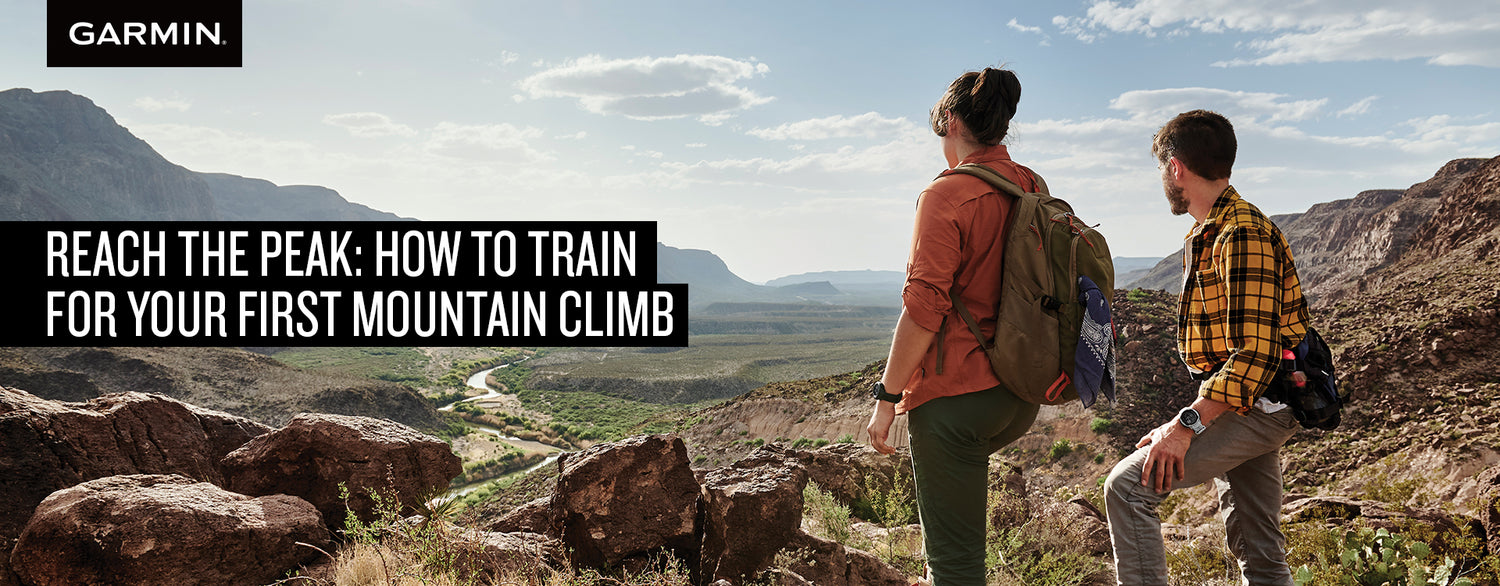Are you dreaming of standing on top of a mountain, taking in the breathtaking view and feeling a sense of accomplishment? If yes, then this article might just be the perfect beginner’s guide for you to make that happen.
Mountain climbing is a challenging and rewarding experience, but it requires proper training and preparation. In this blog post, we'll provide tips and guidelines on how to train for your first mountain climb, from building cardiovascular fitness and strength to developing technical skills and mentally preparing yourself. We'll also cover the importance of rest and recovery so that you won’t be overworking yourself while trying out this exciting adventure. So gear up and let's start training for that summit!
Improve cardiovascular fitness.

The first mountain climb is a rite of passage for many climbers. With any new endeavor, it's best to start slow and steady.
Regular aerobic exercises such as running, cycling, and swimming will improve your endurance and stamina. Start by building a base of cardio fitness and then gradually increase the duration and intensity of your workouts as you get closer to your climb.
When training for an uphill hike or climb, start with a warmup that includes some light activity, followed by progressively longer and more intense efforts until you reach your target heart rate.
Once you've reached this level of effort, take a short break before starting again at a slower pace. Repeat this cycle several times, if necessary. The key is to build up slowly so that you don't tire out too quickly while on the trail.
Concentrate on strength training.
Focus on exercises that target the muscles used in climbing, such as the legs, core, and upper body. This can include squats, lunges, deadlifts, and pull-ups.
Achieving proper form is key to injury prevention. If you're just starting out, it's best to begin with an exercise that allows you to focus on proper form for a few weeks before adding weight or moving into something more challenging.
Develop your skills through different activities.
You can train to climb mountains in many ways, but the simplest and most effective approach is to hike and climb different types of terrain, including steep inclines and rocky paths.
This is a great way to build up your endurance and stamina, giving you the energy to push forward when climbing. It's also a good way to get used to being out of your comfort zone, which will help with your nerves at the start of your climb. Hiking also helps you develop technical skills such as hiking up steep inclines and balancing on rocks, which are important for climbing mountains.
Climbing is a great way to hone your technical skills, especially if you're new to mountaineering or just want more practice in this area. Climbing involves learning how to move quickly and efficiently through different terrains, which will help you be able to navigate tricky sections during your climb.
To really improve as a climber, it's also important that you get some experience while on solid ground—whether that means hiking or getting into some rock-climbing.
Practice carrying weighty backpacks and equipment.

The next step to reaching the peak is to practice carrying heavy loads. The next time you go hiking, bring along your favorite heavy pack or backpack. It doesn't have to be anything too heavy yet. Make sure it’s light enough that you can carry it comfortably and the weight is distributed evenly on your back.
If this sounds like too much work, then just head out with whatever backpack you have right now and try carrying it around for a couple of days. You might feel like giving up after just a few minutes, but don't let this stop you. Keep at it until your arms are sore and your shoulders ache from holding the pack in place.
This will help you get used to carrying more weight than when you’re just walking around town or in the park with no gear at all.
Get yourself accustomed to higher altitude.
Another thing you need to do in order to be ready for a climb is to gradually acclimatize yourself to higher altitudes. The best way to do this is by spending time at each level and gradually moving up as your body adapts.
The most important thing is you get used to breathing harder and faster than normal. You'll also want to be sure that your sleeping pattern is adjusted accordingly so that you don't sleep too much or too little at any level of altitude.
Remember that rest and recovery is also important
You can’t just be training hard all the time; it’s vital that you take time to relax and let your body recover. This means taking regular breaks and eating well.
If you're not getting enough sleep, it's hard to train hard and long. If you're eating poorly, it's hard to get the nutrients you need from food. If you're training too much or too often, that can also lead to injury and burnout.
A good rule of thumb is to allow two days of rest after each week of activities. Make sure you get enough sleep and eat well to support your training.
Final Words
Overall, getting ready for your first mountain climb can be done in so many ways. Don’t limit yourself to these tips and consider exploring more, depending on your preference and how fit you think you are.
But of course, it would never hurt to be prepared enough by getting a fitness partner that integrates all the features you need to survive your first mountain climb, and Garmin’s Instinct 2s smartwatch is exactly the perfect device for that.

The Instinct 2s is all about pushing boundaries, and it believes in the power of a good adventure. This rugged smartwatch is tough enough to keep up with you and unique enough to fit your style.
The Instinct 2s is designed for adventurers who want to train their way but don’t want to hold back. With 21 days of battery life in smartwatch mode, you can train, hike, run, and explore like never before. Also designed to be the perfect fitness coach, the Instinct 2s helps you understand your body better, whether you're training for a climb or just looking for more insight into how your diet is working for your body and how you’ve been sleeping at night.

In conclusion, you have to remember that mountain climbing is a challenging and physically demanding activity, so it is important to listen to your body and not push yourself too hard. It is also important to be aware of the signs of altitude sickness and to descend if necessary.
With proper training and preparation, there is no doubt that you will be able to conquer your first mountain climb and enjoy the beautiful views from the summit in no time, together with the Instinct 2s smartwatch as your reliable partner.








Leave a comment
All comments are moderated before being published.
This site is protected by hCaptcha and the hCaptcha Privacy Policy and Terms of Service apply.